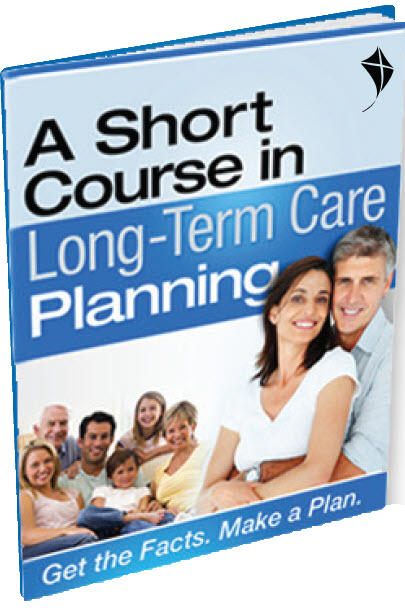Q: Why would a business owner buy long term care insurance,
when the business could buy it for them?

Yours, with our thanks for answering 2 quick LTC questions.
what is Term life insurance?
There are two basic types of life insurance

Unlike "whole life," which is a kind of "cash value insurance," according to the National Association of Insurance Commissioners:
"Term insurance generally has lower premiums in the early years, but does not build up cash values that you can use in the future.
You may combine cash value life insurance with term insurance for the period of your greatest need for life insurance to replace income.
Term Insurance covers you for a term of one or more years. It pays a death benefit only if you die in that term.
Term insurance generally offers the largest insurance protection for your premium dollar. It generally does not build up cash value.
You can renew most term insurance policies for one or more terms even if your health has changed. Each time you renew the policy for a new term,
premiums may be higher. Ask what the premiums will be if you continue to renew the policy.
Also, ask if you will lose the right to renew the policy at some age.
For a higher premium, some companies will give you the right to keep the policy in force for a guaranteed period at the same price each year.
At the end of that time you may need to pass a physical examination to continue coverage, and premiums may increase.
You may be able to trade many term insurance policies for a cash value policy during a conversion period — even if you are not in good health.
Premiums for the new policy will be higher than you have been paying for the term insurance."

An Insurance for Business Article, because . . .
readers are leaders, of course.
Finding a good value in life insurance

After you have answered the question, "What is term life insurance?" Decide which kind of life insurance is best for you.
"Compare similar policies from different companies to find which one is likely to give you the best value for your money.
A simple comparison of the premiums is not enough. There are other things to consider. For example:
■ Do premiums or benefits vary from year to year?
■ How much do the benefits build up in the policy?
■ What part of the premiums or benefits is not guaranteed?
■ What is the effect of interest on money paid and received at different times on the policy?
Remember that no one company offers the lowest cost at all ages for all kinds and amounts of insurance. You should also consider other factors:
■ How quickly does the cash value grow? Some policies have low cash values in the early years that build quickly later on.
Other policies have a more level cash value build up. A year-by-year display of values and benefits can be very helpful.
(The agent or company will give you a policy summary or an illustration that will show benefits and premiums for selected years.)
■ Are there special policy features that particularly suit your needs?
■ How are nonguaranteed values calculated? For example, interest rates are important in determining policy returns.
In some companies increases reflect the average interest earnings on all of that company’s policies regardless of when issued.
In others, the return for policies issued in a recent year, or a group of years, reflects the interest earnings on that group of policies. In this case, amounts paid are likely to change more rapidly when interest rates change."


